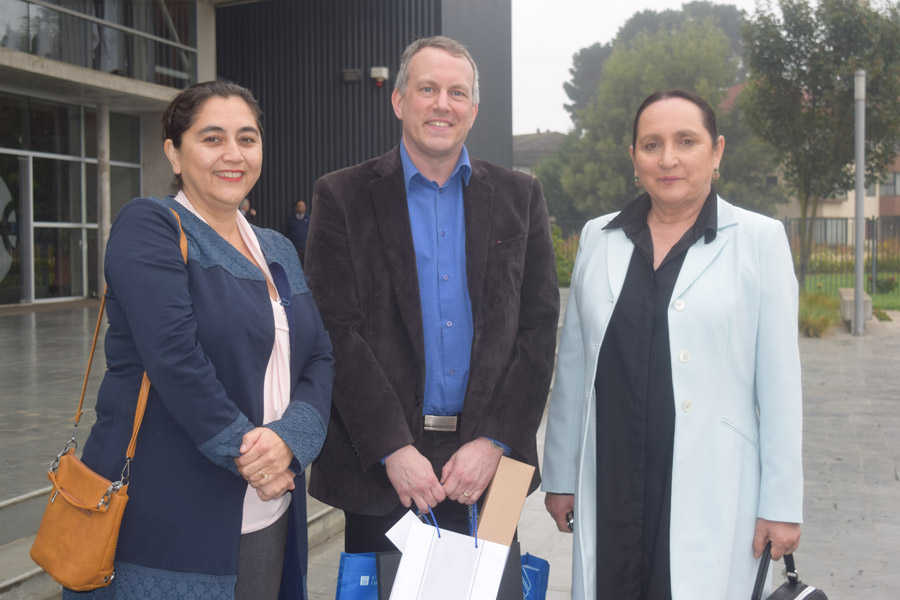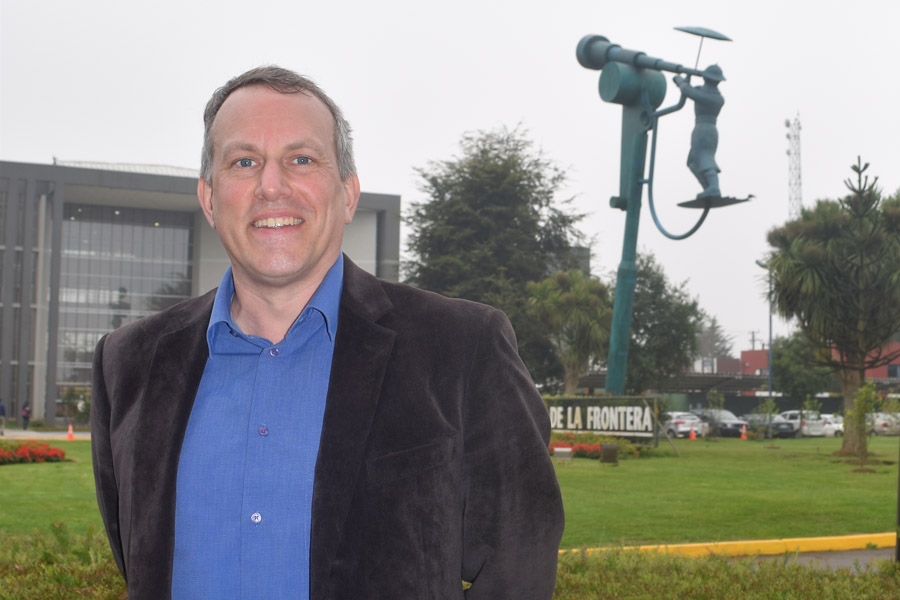|
The Doctor in English Philology and director of the Program in English Philology at the University of Tampere, Mark Kaunisto, travelled from Finland to Temuco and met with authorities and professionals of the Universidad de La Frontera in order to give a new impetus to the agreement. |
The University of Tampere is located north of Helsinki in the city of Tampere and has more than eleven thousand undergraduate students, two thousand more than the Universidad de La Frontera. Both higher education establishments signed a Cooperation Agreement, five years ago, which stipulates the exchange of Finnish teachers who come to our University to teach and strengthen the English skills of our undergraduate students, while they get to know the local culture and learn Spanish. In order to give a new impetus to this agreement, the Doctor in English Philology and director of the Program in English Philology at the University of Tampere, Mark Kaunisto, travelled from Finland to Temuco. He met with UFRO authorities and professionals to address the specific agreement that, in August 2018, will bring two English teachers of the University or Tampere to the UFRO for the first time. They will be collaborating at the Language Coordination Center (CODI) for undergraduate students and in the English Teaching Program. At the same time, Dr. Mark Kaunisto expressed his satisfaction with how the English program is developed for all UFRO study Programs. “In recent times, we have been contacted by universities from different parts of the world and that created trust regarding the result of our work, and the interest in supporting the Universidad de La Frontera came up because it is part of our institutional policy to share the results of our experience with the rest of the world”, he explained. “I was anxious to see how the English language is taught here and, in this context, I was impressed when I saw the classroom equipment and also the space and big local development of the educational material the Language Coordination Center works with, such as the platform and educational videos for English teaching. They involve methodologies in the context of real life for the students in this country”, Kaunisto pointed out. THE FINNISH SECRET Finland is a country with a very good reputation worldwide, for its education but also for its quality of life. In addition, according to the Annual World Happiness Report of 2018, an initiative of the UN, the Nordic country is the happiest in the world. Apart from that, its population of more than five million people is at least trilingual, since Finnish and Swedish are the native languages and the English language is learnt from a young age. The academic staff member of the UFRO Department of Language, Literature and Communication and coordinator of the Minor in English, Lilian Gonzalez, expressed her concern about the poor command of English in the country and emphasized the importance of this agreement between both universities. “The level of English has to be significantly improved. In Finland, a person who finishes secondary education is trilingual, with Finnish, Swedish and English. Therefore, their standards are very high. At the same time, the University of Tampere showed its interest and is open to this concept, because several of its teachers have come to our University to work with us, with excellent results and a good evaluation by the students.” How do they teach English in Finland? And why do they have such a good language command? These were the questions Dr. Mark Kaunisto has been asked and he explained that they do intensive teaching starting in elementary education. “Finnish and Swedish are the official languages and English is a foreign language we start teaching intensively in elementary education. One of the main motivations the kids have for learning English is that the media uses this language and it is not translated. For example the shows on television do not have subtitles and therefore it is normal for children to see and hear the programs in English. This way, they also train their sense of hearing and that is an important support for their progress at school.” “And since this immersion in the English language happens in such a natural way, it facilitates the learning process of other languages, such as Spanish, German or French. It is like sports: if you already play soccer, it is easier to learn how to play basketball or tennis. The second language is difficult to learn, but the next ones are easier, since your brain is already trained and flexible, and also your attitude”, Kaunisto assured.
|






